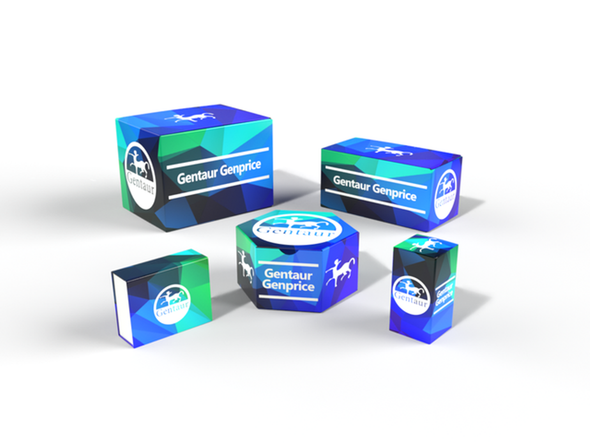BW
MAX (phospho-S11) polyclonal Antibody | BS64009
- SKU:
- BW-BS64009
- Availability:
- Usually ships in 5 working days
Description
MAX (phospho-S11) polyclonal Antibody | BS64009 | Gentaur UK, US & Europe Distribution
Host: Rabbit
Reactivity: Human,Mouse,Rat
Application: WB
Application Range: WB: 1:500~1:1000
Background: It is now well established that the nature and relative abundance of individual subunits of different classes of transcription factors can positively or negatively regulate levels of gene expression. Myc proteins homodimerize and bind DNA poorly, if at all, at physiological levels. Max is a nuclear localized bHLH-Zip protein initially identified by screening a B cell expression library with the bHLH-Zip region of c-Myc. Max homodimers and the Myc-Max heterodimers bind the sequence CACGTG; however the binding of the hetero-dimeric complex is stronger than the Max homodimer. The Max gene products have been identified as Max and Max 9 proteins that differ by a 9 amino acid insertion N-terminal to the basic region. In contrast to Myc, which is highly regulated during progression through the cell cycle, Max is highly stable and is much more abundant than Myc. Two members of the bHLH-Zip protein family, designated Mad and Mxi1, homodimerize poorly but form heterodimeric complexes with Max that have opposing functions to Myc-Max heterodimers with respect to regulation of gene expression.
Storage & Stability: Store at 4°C short term. Aliquot and store at -20°C long term. Avoid freeze-thaw cycles.
Specificity: p-MAX (S11) polyclonal Antibody detects endogenous levels of MAX protein only when phosphorylated at Ser11.
Molecular Weight: ~ 18 kDa
Note: For research use only, not for use in diagnostic procedure.
Alternative Names: Protein max; Class D basic helix-loop-helix protein 4; bHLHd4; Myc-associated factor X; BHLHD4
Immunogen: Synthetic phosphopeptide derived from human MAX around the phosphorylation site of Serine 11.
Conjugate: Unconjugated
Modification: Phosphorylation
Purification & Purity: The Antibody was affinity-purified from rabbit antiserum by affinity-chromatography using epitope-specific immunogen and the purity is > 95% (by SDS-PAGE) .
Pathway:






